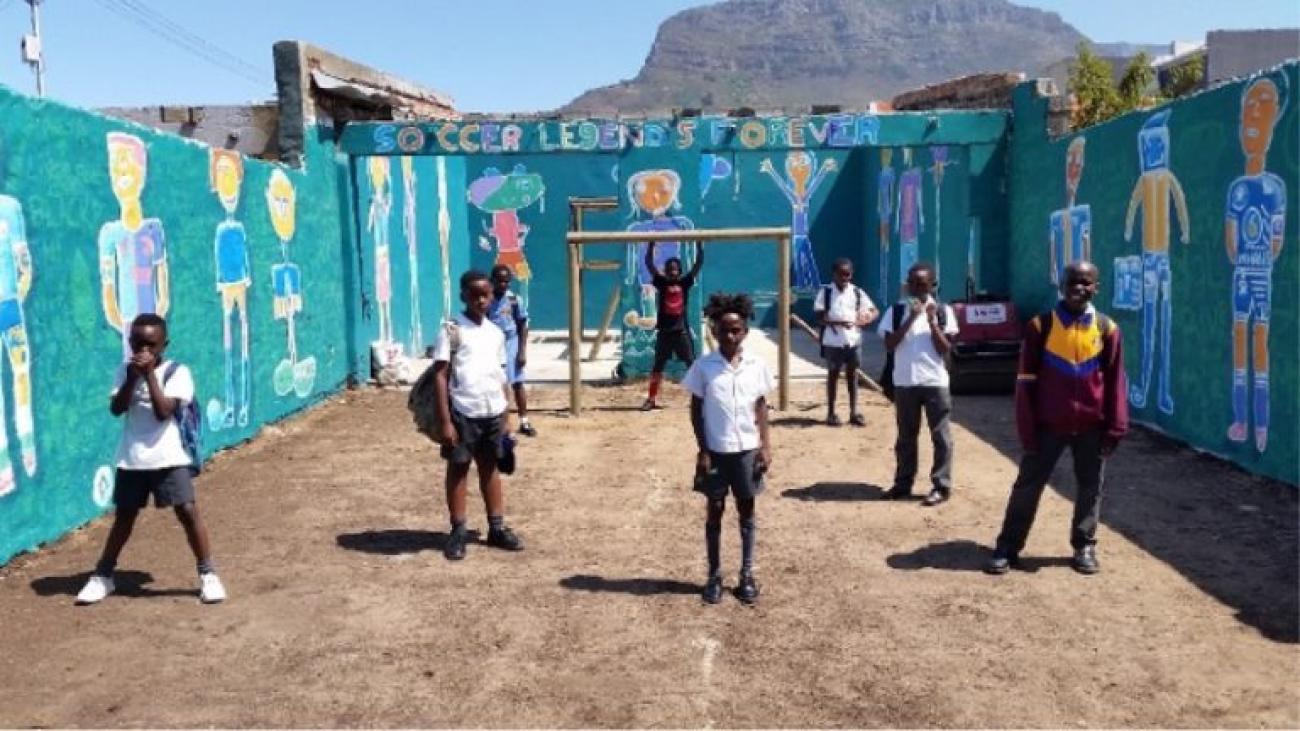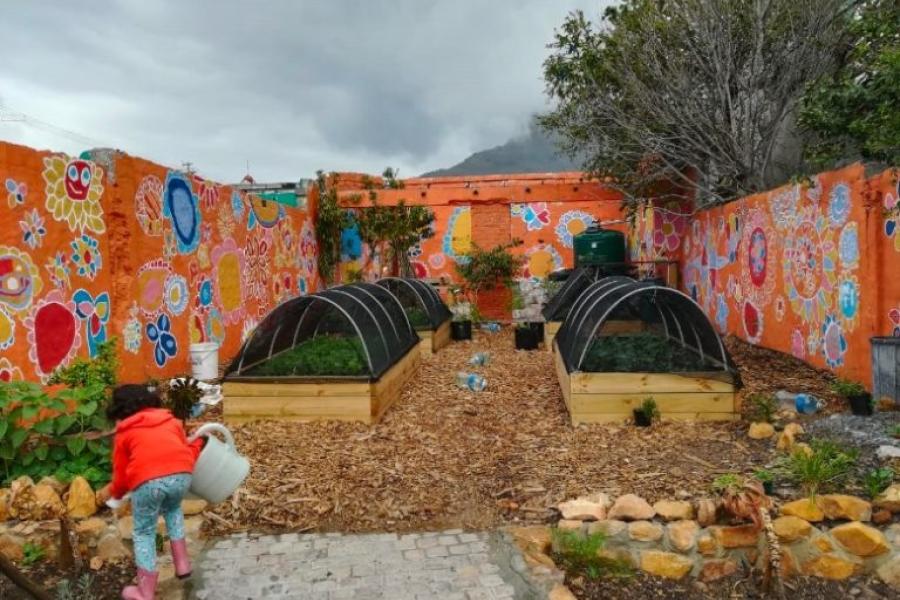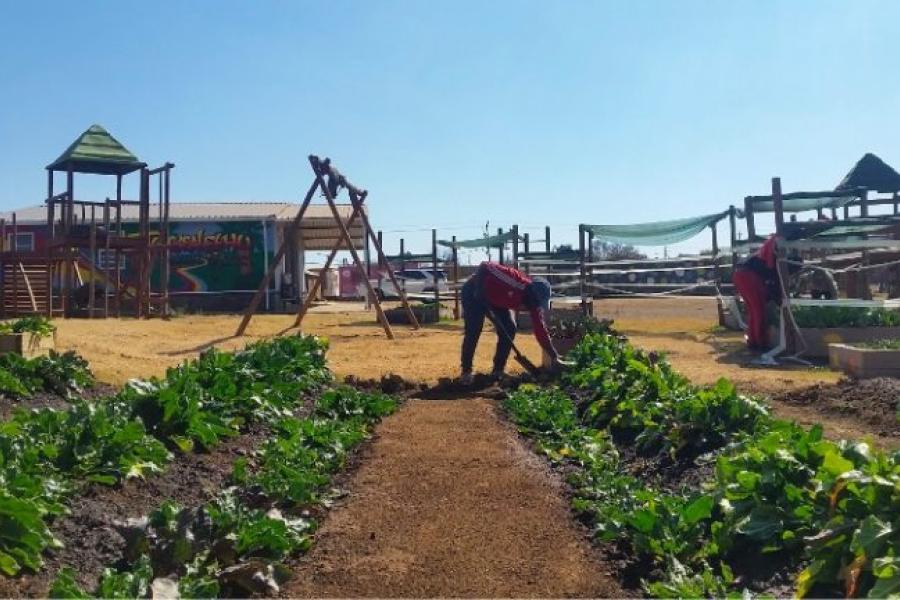Green shoots of hope growing in South Africa

The socio-economic fallout from the pandemic has threatened the wellbeing of entire communities and hunger continues to be a major concern for many.
A little more than year ago, before South Africa declared a national state of disaster due to Covid-19, a group of inspiring people came together in Salt River, Cape Town at the annual International Public Art Festival to create something with a lasting benefit for the local community.
The non-governmental organizations Progress and Bazart, together with Tuba Films and UNICEF South Africa, joined residents in a year-long project to transform disused parts of the city into community gardens and safe play areas through public art, gardening and film making.
Hope amidst adversity
Despite the immense challenges of the COVID-19 pandemic, this is a story of hope and renewal, as children were helped to transform discarded and unused spaces in their neighbourhoods into food gardens and safe havens to gather and play.
Three sites were identified for transformation: an urban area of Salt River, a Safe Park in Soweto and a plot on the grounds of a rural school in Durban.

Bazart, which uses street art to transform communities and individuals, sourced artists and worked with residents to paint murals based on the theme of “digital space”. Tuba Films, a Cape Town agency focused on social issues, trained six young people in film making – two from each project site. They went on to document the project and the creation of safe spaces in their communities.
Progress, the NGO, creates transferable skills through inner city development, education about organic food growth, and public art. The Progress team worked with residents to learn about good nutrition and how to improve nutritional intake through community-level food production. Residents started by clearing the ground and removing rubbish. Young people received training on how to create a food garden from an unused space, how to produce seeds and to nurture the ground for a sustainable and diverse garden. As time progressed, the gardens flourished with crops such as kale, spinach, carrots, beans, tomatoes and beetroot.
Then lockdown hit
In response to the spread of Covid-19, the South African Government imposed strict lockdowns. As the economy ground to a standstill, millions of South Africans lost their livelihoods and queues quickly formed for social grants and at soup kitchens. The socio-economic fallout from the pandemic has threatened the wellbeing of entire communities and hunger continues to be a major concern for many.

Yet the three project gardens continued to grow and, through the employment of young people and women, they were able to include water tanks and handwashing stations to help promote personal hygiene.
The spirit of ‘Ubuntu’
People young and old said that the process of creating the gardens had empowered them and transformed their lives, as young people learned about nutritional issues and had access to fresh food during lockdown. Many are now also gardening at home.
Residents at the three sites also highlighted how they love to bring their children to the gardens, in areas that used to be no-go zones with high rates of substance abuse and crime. People are proud of their gardens and the project has built cohesion, fostering the spirit of ‘Ubuntu’ – unity and compassion – just when it is needed most.
As we reimagine a safer and fairer South Africa for every child and build back better from the devastation of Covid-19, community gardens like these not only produce nutritious food, but also provide a safe environment for children to learn and grow, by fostering skills and employment and forging partnerships between diverse groups of people. The partners now plan to expand the programme to 40 sites across South Africa by the end of 2022 with the intention of empowering 25,000 young people.
















